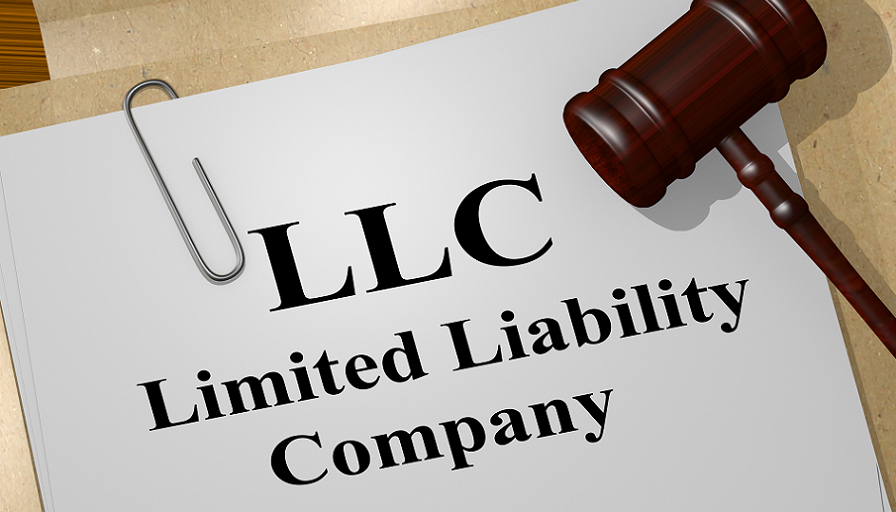
When you’re starting a business, one of the first decisions you’ll need to make is choosing the type of legal structure that best suits your needs. The two most popular options are Limited Liability Companies (LLCs) and corporations. While they might seem similar at a glance, there are some critical differences between the two. Here we examine these differences, so you can determine which structure aligns with your business goals and preferences.
Contents
Basics of a Limited Liability Company (LLC)
What Is an LLC?
A Limited Liability Company, commonly referred to as an LLC, is a flexible business structure that combines the benefits of a corporation’s limited liability with the operational flexibility and tax efficiencies of a partnership. This structure is popular among small business owners because it protects personal assets while allowing profits to be taxed in a straightforward way.
Advantages of an LLC
- Limited Liability Protection: Owners of an LLC, known as members, are protected from personal liability for business debts and claims. This means that personal assets like your home or car are generally safe if your business incurs debts or faces lawsuits.
- Simple Taxation: LLCs often benefit from pass-through taxation, meaning profits are not taxed at the company level. Instead, profits pass through to the members, who report them on their personal income tax returns.
- Flexibility in Management: LLCs do not require a formal board of directors or annual meetings. This allows for more flexible management structures and less paperwork.
Disadvantages of an LLC
- Self-Employment Taxes: LLC members may be subject to self-employment taxes on their share of the profits.
- Limited Growth Potential: Unlike corporations, LLCs can find it more challenging to raise capital because they cannot issue stock.
Corporation Basics
What Is a Corporation?
A corporation is a legal entity that is separate from its owners, providing its shareholders with limited liability protection. Corporations are characterized by a more structured framework and are owned by shareholders who elect a board of directors to oversee major decisions and policies.
Advantages of a Corporation
- Limited Liability: Like an LLC, a corporation provides owners with protection from personal liability.
- Ability to Raise Capital: Corporations can issue stock, which can make it easier to attract investors and raise funds.
- Perpetual Existence: Corporations continue to exist even if ownership changes, making them a stable structure for businesses aiming for longevity.
Disadvantages of a Corporation
- Complex Taxation: Corporations face double taxation, meaning income is taxed at the corporate level and again at the shareholder level when dividends are distributed.
- Regulations and Formalities: Corporations must adhere to more stringent record-keeping, reporting, and possibly more expensive administrative requirements than LLCs.
Key Differences Between an LLC and a Corporation
Ownership and Structure
One of the current differences lies in their ownership structures. LLCs are owned by members, who can be individuals, other LLCs, or even corporations. In contrast, corporations are owned by shareholders. This structural difference plays a role in decision-making and how profits are distributed.
Taxation
Taxation is a significant differentiator. LLCs generally enjoy pass-through taxation, simplifying the filing process for many small business owners. Corporations face double taxation; however, they have options, like electing S corporation status, to mitigate this issue and achieve pass-through taxation under certain conditions.
Management
LLCs provide more freedom in terms of management, allowing members to decide how the business is run. The absence of a requirement for a board of directors or annual meetings can be a significant time-saver. Corporations, on the other hand, must have a board of directors. They oversee major corporate decisions, and this can either be a benefit or a burden depending on your business needs.
Formality and Compliance
Corporations often face more complex regulatory requirements, including holding regular shareholder meetings, maintaining detailed records, and filing annual reports. LLCs, in comparison, have fewer formalities to maintain, which can be an advantage for small businesses looking to minimize administrative burdens.
Raising Capital
Raising money can be easier for corporations due to their ability to issue stocks. Investors are often more attracted to corporations due to their framework and the potential liquidity that stocks can provide. Meanwhile, LLCs might rely more heavily on loans or funding from their members.
Which is Right for Your Business?
Choosing between an LLC and a corporation can depend on several factors, including your business goals, the desired level of flexibility, future growth plans, and financial strategies. Consider the nature of your business, how you want it to operate day-to-day, and where you see it heading in the future.
If you value simplicity and direct control over your business operations, an LLC might be the most suitable choice, especially if you’re starting out small or plan to keep operations relatively contained. However, if you’re poised for rapid growth and looking to attract outside investors, the robustness and structured nature of a corporation may present advantages.
It can also be helpful to consult with a business advisor or legal expert who can give you tailored advice based on your unique situation. Whatever route you choose, understanding these key differences is an essential step in laying a solid foundation for your business venture.

